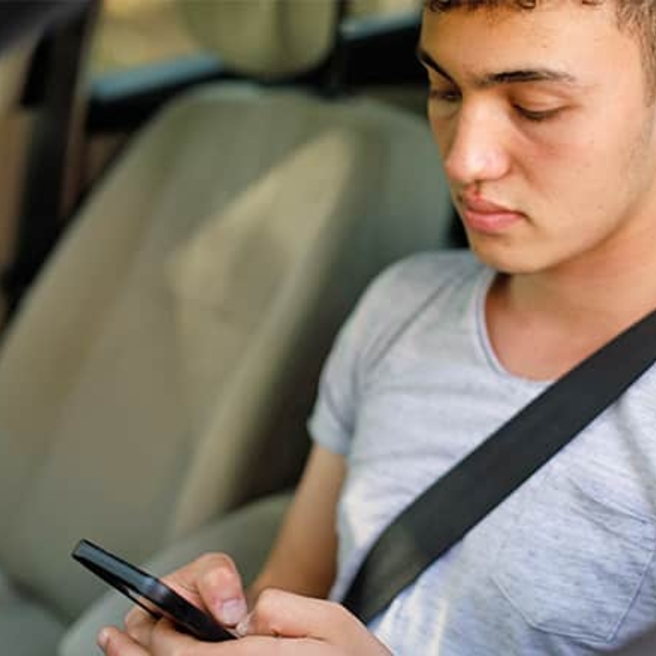A new study, conducted by a group of researchers from Penn Nursing, the Perelman School of Medicine and the Center for Injury Research and Prevention (CIRP) at Children’s Hospital of Philadelphia (CHOP), found a strong association between handheld cellphone use and risky driving behaviors among newly licensed teen drivers.
The study, published online first in JAMA Network Open, used a smartphone telematics application to track the driving habits of hundreds of teens and identify potential safety risks.
The investigation found that teens who used their cellphones while driving were significantly more likely to engage in risky driving behaviors, such as hard braking and rapid acceleration. These behaviors can increase the risk of accidents and injuries.
"This study provides further evidence of the dangers of handheld cellphone use while driving," said lead study author Catherine C. McDonald, PhD, RN, FAAN, the Dr. Hildegarde Reynolds Endowed Term Chair of Primary Care Nursing, Co-director of the Penn Injury Science Center and an affiliate scientist with CIRP. "It's crucial for teens and their parents to be aware of the risks and to take steps to avoid using their phones while driving."
The researchers used a smartphone telematics application to track the driving habits of 119 teen drivers who had their license for less than one year over a period of 60 days. They analyzed data on trip characteristics – such as nighttime driving, precipitation and length of drive – as well as speeding, handheld cellphone use, and risky driving events. The study found that in more than one third of trips, teens engaged in handheld cellphone use and speeding upwards of 40% of the trip. Handheld cellphone use and speeding was also associated with kinematic risky driving events.
"Smartphone telematics applications provide a valuable tool for studying driving behavior and for developing interventions to improve safety," said McDonald. "By identifying risky behaviors, we can develop targeted interventions to help teens become safer drivers."
Featured in this article
Experts
Specialties & Programs
Research
A new study, conducted by a group of researchers from Penn Nursing, the Perelman School of Medicine and the Center for Injury Research and Prevention (CIRP) at Children’s Hospital of Philadelphia (CHOP), found a strong association between handheld cellphone use and risky driving behaviors among newly licensed teen drivers.
The study, published online first in JAMA Network Open, used a smartphone telematics application to track the driving habits of hundreds of teens and identify potential safety risks.
The investigation found that teens who used their cellphones while driving were significantly more likely to engage in risky driving behaviors, such as hard braking and rapid acceleration. These behaviors can increase the risk of accidents and injuries.
"This study provides further evidence of the dangers of handheld cellphone use while driving," said lead study author Catherine C. McDonald, PhD, RN, FAAN, the Dr. Hildegarde Reynolds Endowed Term Chair of Primary Care Nursing, Co-director of the Penn Injury Science Center and an affiliate scientist with CIRP. "It's crucial for teens and their parents to be aware of the risks and to take steps to avoid using their phones while driving."
The researchers used a smartphone telematics application to track the driving habits of 119 teen drivers who had their license for less than one year over a period of 60 days. They analyzed data on trip characteristics – such as nighttime driving, precipitation and length of drive – as well as speeding, handheld cellphone use, and risky driving events. The study found that in more than one third of trips, teens engaged in handheld cellphone use and speeding upwards of 40% of the trip. Handheld cellphone use and speeding was also associated with kinematic risky driving events.
"Smartphone telematics applications provide a valuable tool for studying driving behavior and for developing interventions to improve safety," said McDonald. "By identifying risky behaviors, we can develop targeted interventions to help teens become safer drivers."
Recommended reading
Cell Phone Use While Driving May Be Tied to Other Risky Road Behaviors in Young Adults

Pattern of risky driving practices associated with impulsivity, including speeding and running red lights.
Contact us
Ben Leach
Center for Injury Research and Prevention (CIRP)